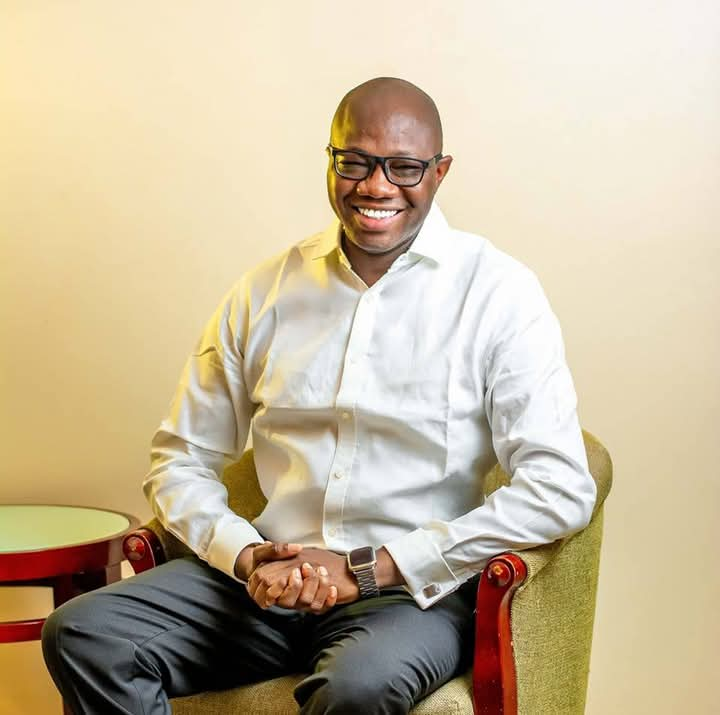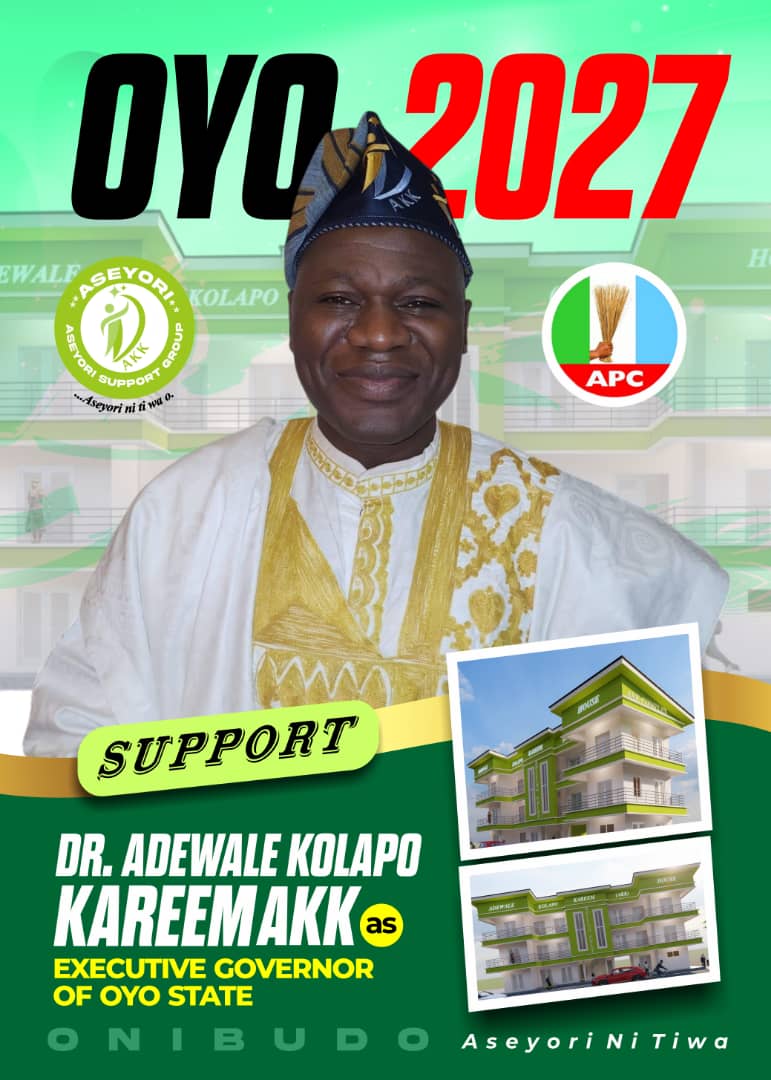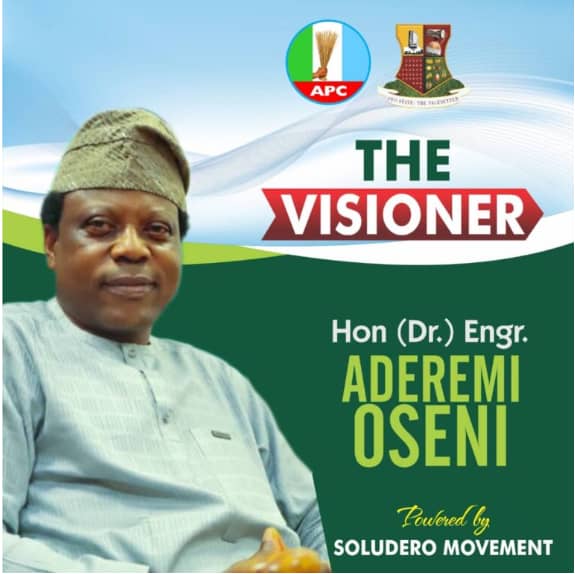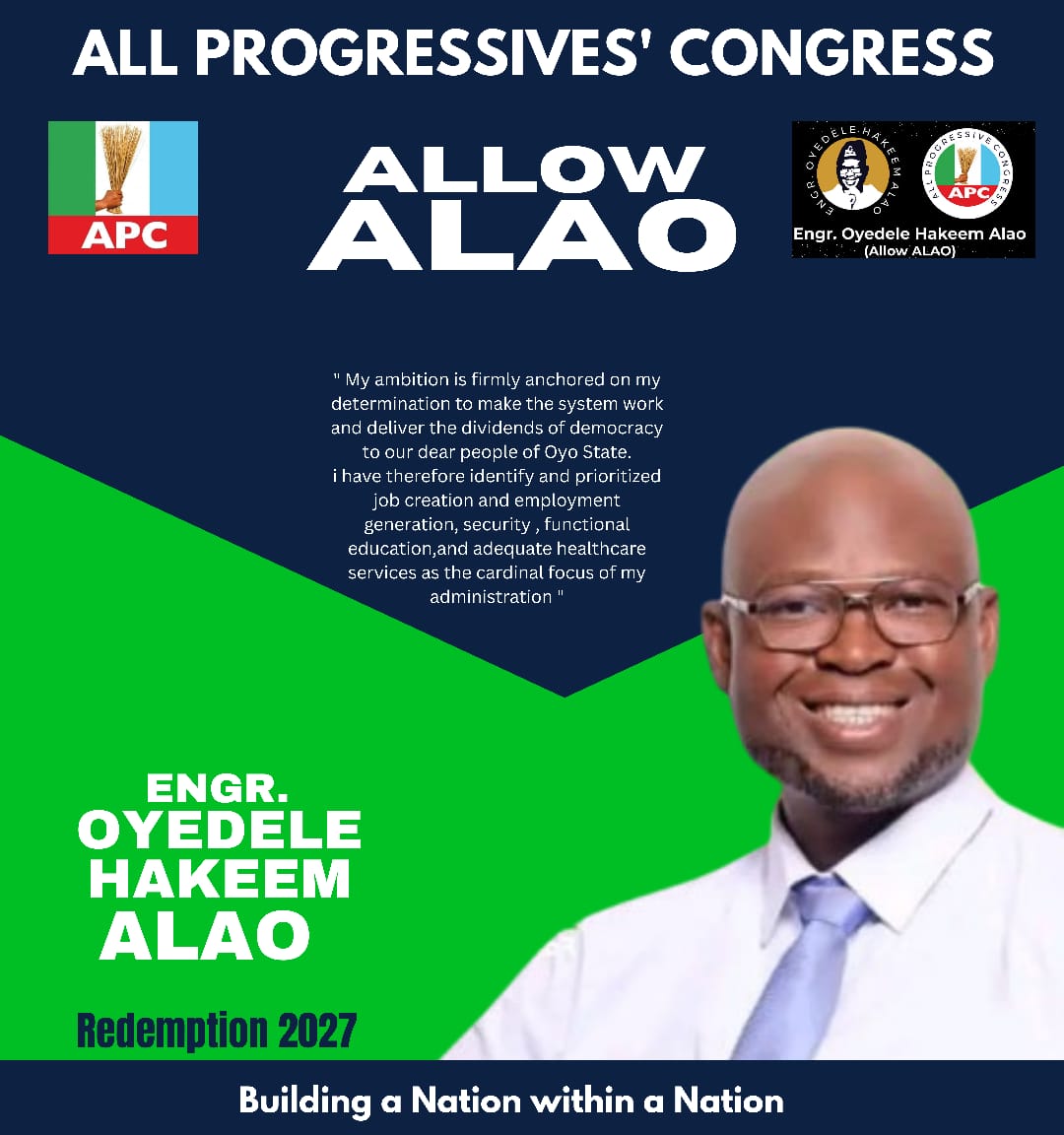

It is rather quite pathetic that some people have reduced the forthcoming 2027 gubernatorial electioneering activity in Oyo State to a campaign of calumny aimed at smearing the image of their political opponent(s). Though, this is not new, but, the dimension this has taken is frightening.
I became livid seeing how one of those who is presumed to have an eye on the Agodi seat is being dragged online because of the fact that he married from another tribe and also because his two children answers Igbo names. To the army of online critics who have chosen to deviate from raising quality engagements premised on ideas and programmes but since swamped him for christening his children Igbo names (as if the choice of a name that is unrelated to one’s tribe is an alien practice), he has committed an abomination. However, those of us in the gender field have seen in Beulah a man who places premium on women by treating his wife as an equal who has a place in the decision-making process of their family. If anything, his family structure is the reflection of a man who understands unity and democratic choice.
The noise and criticism which has accompanied the ‘revelation’ has left me to ask if child-naming is the exclusive reserve of a man in a relationship. It must be emphasised that restricting child-naming to a man’s duty which the whole conversation is about is one of the patriarchal agenda which has limited women’s contributions to society only to the kitchen. To even say that these people expect that after carrying a baby for a certain number of months and also breastfeeding same for years, a woman does not have any influence over the name such child answers is a reasoning below par.

The whole conversation which has also left these people to compare Beulah’s wife to Betty Akeredolu suggests that even in contemporary society, women still remains targets of harmful discriminatory practices within and outside the family units. The fear being expressed by these people, mostly men is coming from those who view women as being incapable of having a say in how the affairs of a State should be managed. In short, this conversation about Beulah’s marriage highlight persistent challenges to achieving gender equality in Nigeria.

However, the fact that Beulah’s children answers Igbo names which some people have linked to him not having ‘power’ over his family (which will therefore make the power dynamic of the State to slide into the hands of a woman) only suggests that Beulah knows what a balanced and inclusive decision-making authority does to women in the family and society at large.

Truth be told, the discourse about the homefront of Beulah Adeoye by some individuals have been about profanities and inanities (which actually is what the topic is all about), nothing substantial has been derived off it. Rather than initiate division at the homefront of Beulah Adeoye, these individuals should have spoken about how the Office of the First Lady is being used to engage in philanthropic enterprise for personal aggrandisement and political meddlesomeness.
Beulah Adeoye should see the outburst as a challenge for him to initiate definitive processes and policies that will correct societal structures and conceptions that impair gender equality and restrict women to the kitchen (if he emerges).
Finally, there is an urgent need to probe how fast the South West is degenerating into unnecessary ethnic and tribal discrimination by some who feel they are more Yoruba than others. This must be condemned. If care is not taken, we could be breeding extremism that will definitely put the security of the region at a greater risk.
Kazeem Olalekan Israel (GANI) writes from Ibadan, Nigeria.